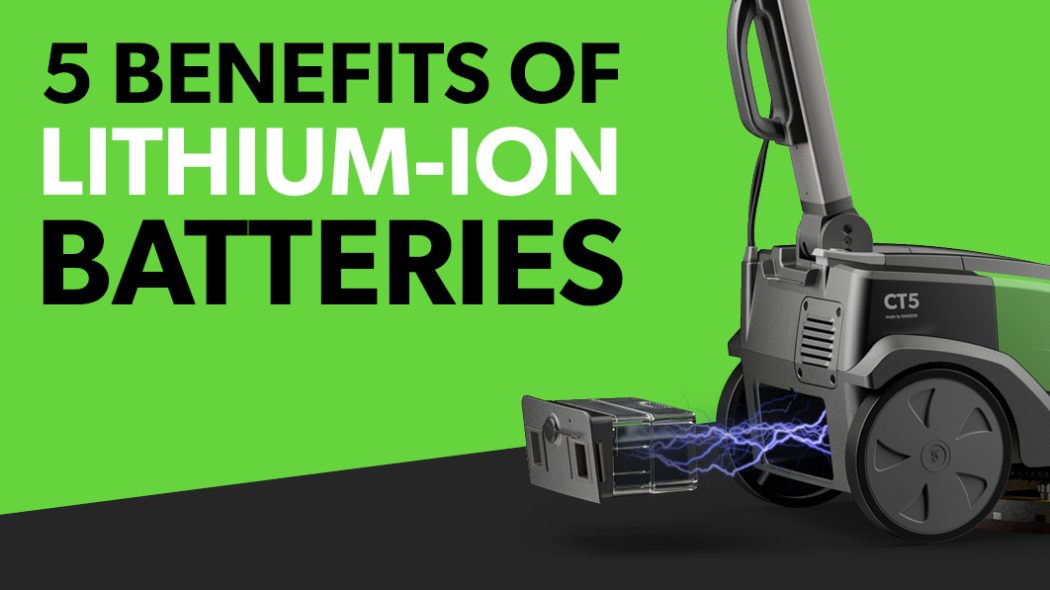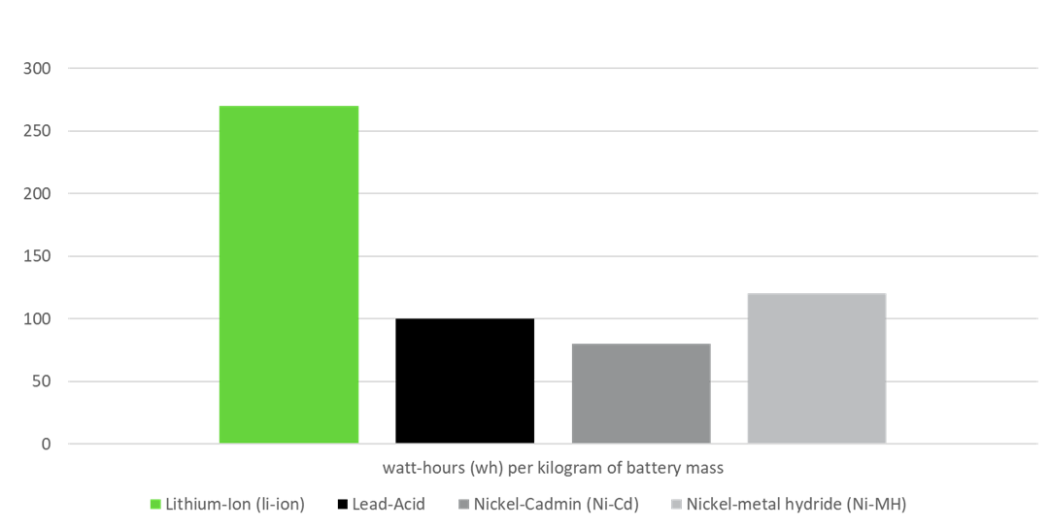
.
Estimated reading time: 4 minutes
We know batteries are a key resource for providing portable power. They are particularly useful when the use of power cables is inconvenient or when trying to avoid noise and gas emissions, making them a valuable alternative to small gasoline engines.
.
However, it’s important to highlight that batteries are far from new, and technology is experiencing a speedy evolution. Not long ago, lead-acid batteries were the only option until nickel-cadmium (Ni-Cd) and nickel-metal hydride (Ni-MH) batteries came along. Over time, these options have given way to more advanced lithium-ion batteries.
.
Lithium-ion batteries offer many advantages in the cleaning industry compared to other battery types. Their ability to store and release energy efficiently makes them the most popular choice in a wide range of applications.
.
Lithium-ion batteries have already shown their worth in various applications from automobiles to cell phones and have massive potential as a power source for floor cleaning machines. They provide immediate and significant gains, such as:
- Higher runtime and productivity
- Lower operating costs
- Reduction in cost-of-ownership over time
.
If you’re considering the purchase of a battery-powered floor cleaning machine, it’s worth taking a closer look at why lithium-ion batteries stand out as the optimal choice.
.
Advantages of Lithium-Ion Batteries in Cleaning Equipment
.
Lithium-ion technology’s unique quality is the capacity to store more energy in a smaller volume than other types of batteries like lead-acid, nickel-cadmium (Ni-Cd) and nickel-metal hydride (Ni-MH). They offer numerous advantages:
- Size and weight
- Longevity
- Maintenance
- Charging time
- Safety
.
1. Size and Weight
.
Higher energy density means lithium-ion batteries can be much smaller for the same power and run-time as other types of batteries. Alternatively, they can hold more charge to keep running longer. That means lighter and more maneuverable equipment, and more working hours, less time spent recharging, or both.
.
To quantify the difference, lithium-ion batteries typically store 260-270 watt-hours (wh) per kilogram of battery mass. You should note though, thanks to electric vehicle R&D, that number keeps increasing and some batteries now store over 300 wh/kg. In comparison, lead-acid batteries store 50-100 wh/kg, Ni-Cd batteries are in the 45 – 80 wh/kg range and Ni-MH batteries are 60-120 wh/kg.*
.

.
2. Longevity
.
As they go through repeated charging and discharging cycles, all batteries lose the ability to store energy. However, this happens more slowly with lithium-ion than other technologies. Li-ion batteries have an average life cycles 4 times higher than the standard batteries (li-ion batteries in the IPC scrubber dryers have 2000 charging cycles). What’s more, lithium-ion doesn’t suffer the memory effects seen in nickel-based batteries.
.
To be more specific, a lithium-ion battery will still have at least 80% of its storage capacity remaining after it has been through 200 charge-discharge cycles. That is much better than the competition and means the battery won’t need replacing as often.
.
3. Maintenance
.
There are no maintenance costs given the li-ion batteries long life. In turn, there is no need for a battery replacement during the machine’s life. The machines equipped with li-ion batteries are less weight than the others and easier to transport.
.
4. Charging time
.
The chemistry of a lithium-ion battery supports faster charging than other technologies. For cleaning equipment, this means higher productivity, allowing more cleaning time and less machine downtime. The benefits are clear — not just for sustainability and facility health, but also the bottom line:
- Less energy for charging. Li-ion batteries don’t require over-charging to mix the electrolyte. That means they use significantly less energy to charge.
- Fast recharge. Li-ion batteries charge up to 30% faster than lead acid batteries. Li-ion batteries are a type of rechargeable battery that allows a faster recharge than the traditional ones (2 hours vs 7/8 hours of the traditional batteries).
- Longer runtime between charges. Li-ion batteries can deliver up to a 40% improvement in machine runtime between charges.
- Opportunity charging. Batteries don’t need to be on empty to take a charge. With opportunity charging, you can charge the battery whenever it’s convenient – so your floor scrubber can be fully charged when needed.
.
5. Safety
.
Li-ion batteries eliminate the risk of operators coming into contact with battery acid (and the burns and inhalation injuries that can result). Li-ion-powered fleet is emissions-free, which mean there’s no risk of harmful gases that can be the by-product of charging lead acid batteries.
.
Portable Energy for Professional Cleaning Equipment
.
Lithium-ion batteries help keep mobile cleaning equipment compact and lightweight. They boost productivity too, by enabling longer periods between recharging. If you’re looking for or evaluating battery-powered cleaning equipment, make sure lithium-ion batteries are an option. IPC offers an extensive range, so check our website or contact us to discuss your needs.
.
*Source: https://www.schumacherelectric.com/blog/the-benefits-of-lithium-ion-batteries/
.